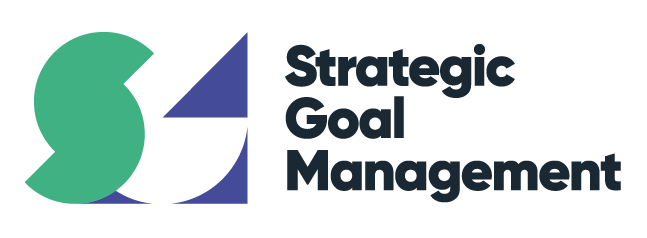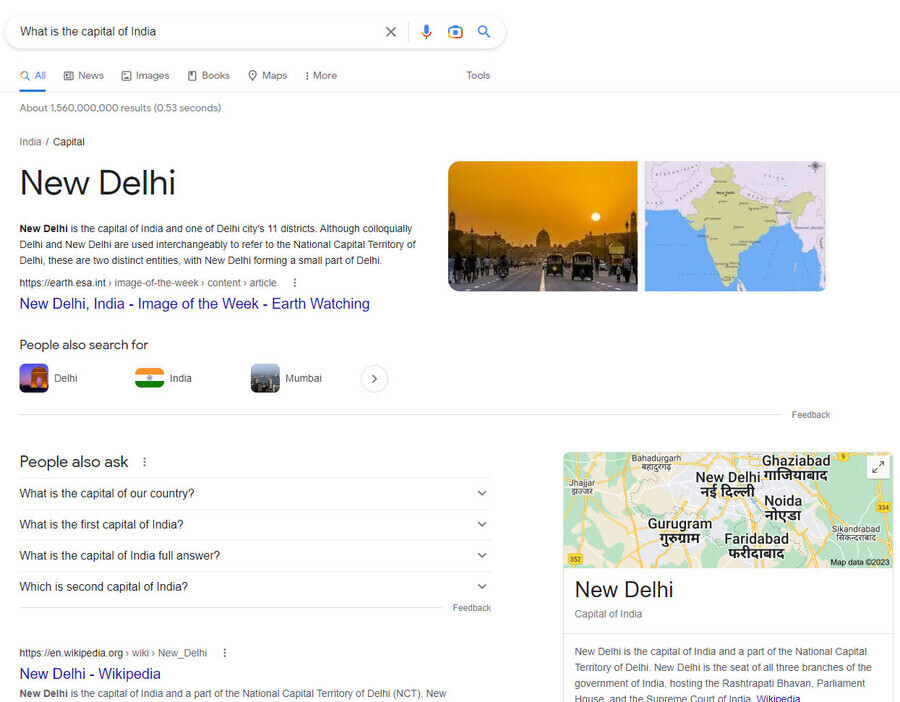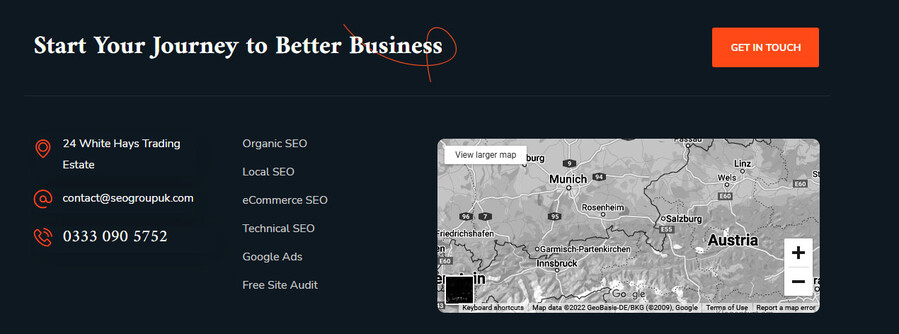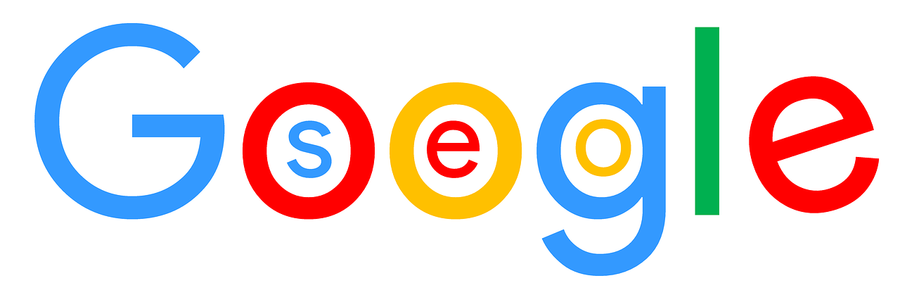 I've been playing with SEO since 2002, and although techniques come and go, the basic concepts and ground rules are still very much the same, which I have used time and time again.
I've been playing with SEO since 2002, and although techniques come and go, the basic concepts and ground rules are still very much the same, which I have used time and time again.
This is an updated version of an older post, which seemed to help a lot of people at least gain an understanding or insight into the perceived dark arts of Search Engine Optimisation which is simply a form of digital marketing.
It also takes into account Google crusades against elements of the SEO industry, and explains some of the pitfalls and how to avoid them!
Note - This is an introduction to a complex subject and is aimed at business owners either having a go optimising their own website, or arming themselves with some basic knowledge, before considering paying someone else!
I've added links at the end to help with resources and suggested further reading such as the superb SEO education provided by Moz. So bookmark, revisit and take it step by step.
If you think I'm wrong, I've confused you, or it actually made sense, feel free to post a comment at the end or even share ![]()
Search Engine Optimisation (SEO)
What is it?
The ability to get somebody searching on Google, Bing or Yahoo for a product or service, to come and visit your website.
How?
By configuring and setting up your web pages so search engines (ie Google) understand what your content is all about, and give you a fighting chance of showing up in Googles search results for relevant queries.
Since the dawn of the search engine, the primary method of getting your content displayed has been keywords.
These are the words people type into a search engine to find what they are looking for. Eg if I type tax office into google, I will get millions of results. If I type in Banbury Tax Office I will get a much more refined search. Getting your website onto the first page of these results is the art (some say religion) of SEO.
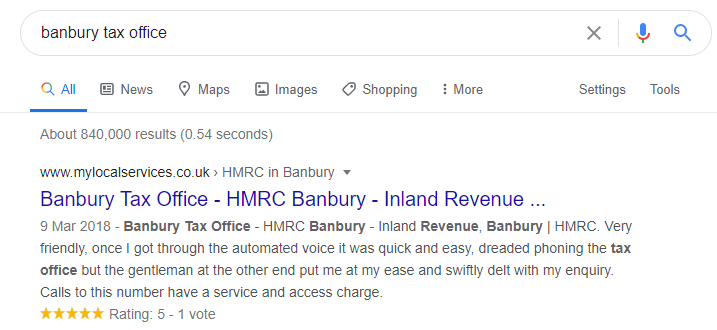
For those that have a greater understanding of SEO, then you may be familiar with the concept of structured data. The visible review stars above are a good example. But you need to walk before you can run.
SEO Concepts
I've broken these down into “On Page” and “Off Page” SEO, and order of importance.
On Page SEO - all the things you (or your web designer) can edit, add and change on your own website. Also referred to as Technical SEO, as you normally have to have a minimum of technical understanding to make changes.
1. URL - Ok, maybe too late if you already have your website set up, but maybe food for thought next time. If you can, try and choose a relevant keyword in the URL (your web link).
As with all things SEO, target the potential visitor, not Google. If having your industry related keyword in your URL makes you really visually obvious or stand out in the search results, then that's cheap marketing. e.g.
steves-carpentry.com
steves-beer-mugs.co.uk
Google these days may give you very little optimisation credit for a keyword in your URL, but don't underestimate humans!
Don't confuse this with exact match domains. This was an age-old SEO trick using generic keywords which is now defunct eg best-builder-london.com or top-beermugs-bradford.co.uk
It can be a grey area, open to interpretation, but use common sense.
2. Keywords – Do some research, if YOU were buying YOUR product, what would YOU type into Google? I’m afraid no one cares that you are called ABC Ltd, and won’t type this into Google. You don’t have a brand, so work out a set of keywords that you think you can achieve and will give you some targeted visitors. There’s plenty of tools out there to help you, just google keyword research or free keyword tools.
It never ceases to amaze me the number of business owners that have no idea what their customers type into Google to find them. What you would put into Google and what your customers put, are normally poles apart. Do some research, ask them.
3. Page Titles - Such a simple and effective fix. Go into your web code (or ask the person who can) and edit the page title between the title tags. e.g. Steves Beer Mugs
If you have a product per page, then get that keyword into the page title, and keep to the beginning of the title tag as close as possible. Try if you can (I never can!) to keep your title around the 50 - 60 character mark. This is where Google will display your full title versus truncating it with three little dots.
It may not sound like a huge thing, but it shows you have the power to make your pages stand out from competitors. Heres a couple of examples of two competitors competing for SEO 101. Spot the truncated one and the other which one gets their full message out in 50 - 60 characters.


4. Page Content – The big one, this is your area to shine. There are no excuses for laziness, no one knows your product better than you. Google loves content. Your page needs to be appealing to someone arriving on your site. If your page title is Steve's Beer Mugs, then Google, you and any visitors will expect that page to be about mugs of beer. Sounds obvious? So why do so many people get it wrong?
In this daft example, the keyword you want to rank well for is “beer mugs”. So the content should be all about beer mugs and mugs of beer, with keyword “beer mugs” and the phrase "mugs of beer" placed occasionally in the text. I say occasionally, use your common sense.
"This site is all about beer mugs, as we like beer mugs and mugs of beer are what we are all about..."
If you write web copy like that, then that's called keyword stuffing. It's an old tactic used by lazy SEO people, and Google will see straight through you and rank you on page 446 accordingly. Write your content for a human reader, make it informative and interesting.
Add your keywords a "few times" throughout your content, but keep it readable and sensible, but it's recommended to add it at least once in bold, ie: beer mugs. If you have keywords as a phrase, feel free to mix them up a bit. eg the phrase Steve's Beer Mugs could be spread across different combinations such as "Steve's Beer", "Beer Mugs", "Steve's favourite mugs of beer" etc. Write to a human audience who you want to be interested in your product or services, not a search engine algorithm who you hope to try and trick. The more natural a page looks, the better you will do. No doubt this page will now end up being optimised for beer!
There is something called a H1 tag, and this is used as a primary heading for your content. So you need to get your keyword into this heading. eg:
Steve's Beer Mugs
In the old days, you were told to make sure whatever was in your page title, should also be in your H1 tag. But in the interest of making it more natural, if you can, make it slightly different from your page title, whilst keeping your keyword. Maybe in this case we could have:
The story of Steve's Beer Mugs
If you are confident in editing your web page at the code level, then a H1 tag looks like this:
Steve's Beer Mugs
You only have one H1 tag per page, ie the title of the primary subject, but you can add as many H2 tags as you like, which tell Google that this is an important part of the page content. So you can then break the page into important sections giving each one a H2 tag. As the importance of the topics on the page decrease, you can use H3 tags.
Googles famous algorithm when it comes to ranking your web age in its search results is famously comprised of 200+ signals. So each of these things will carry just a little bit of weight when it comes to ranking. But don't worry if you can't add any H2 or H3, H4 tags. The biggest thing you can do is write fantastic, well researched and interesting copy that people will read and think "I need to tell my friends about this", or "I need to learn more and buy something".
Remember you are competing with millions of websites and countless SEO people good and bad. To try and level the playing field, Google is always on the lookout for "over SEO'd" websites, which is why we have to tread a little carefully, and mix up our keywords in our content, and not make our site look like it has come from an SEO textbook.
If you have images in your content, then if it is relevant to that keyword, then add the keyword into the alt tags, as this will help your page get indexed in things like Google Images.
Be warned though, adding your keyword as the alt tag for every unrelated image on the page is another form of keyword spam! Alt tags are for things like screen readers, and are meant to be helpful, and not spammy.
Some SEO people and a lot of SEO tools will go on about keyword density, but its cobblers (IMHO), and don't worry about it. People will tell you that your keywords need to be 4% of the content, and there are mathematical formulas to work it out.. blah blah... its all rubbish.
Put them in your page title, H1 tag, about 3 or 4 times in your content, once in bold, plus an image alt tag if you can, and that should do you fine. Be logical, natural and make your content 10 times more interesting and appealing than your competitors. If writing copy isn't your thing, then engage a copywriter, just give them a brief and the keywords you are looking to incorporate.
5. Them meta name things – One of the important on-page areas are something called meta tags or meta data. We touched on them with the page title tags and these live in the code of your web page. You will need access to your code to edit them, or some Content Management Systems like Wordpress will let you access them from a control panel, or ask your web guy. In the old days, meta tags held an important role in telling search engines what your site was, what the keywords were, and what description to display. But they were targeted and abused by spammers and now the keyword meta name is no longer used.
In the head of your code, under the page title tags, you may see it if it is being used, eg:
Steve's Beer Mugs
Personally, I would remove the "keywords" tag if it is being used. If you populate this tag, all it does is act as a quick reference point to your competitors and tells them exactly what keywords you are targeting. They can still get this information from other tools, but why make peoples life easy?
One meta tag that is still used is the description tag This will display under your page title on the search engine results. If you leave this blank, the search engines will grab some text from the web page, but better to tell Google and potential visitors about your site than letting Google guess. That said, Google does have a habit of ignoring this tag from time to time and displaying what it thinks is relevant.
There is a lot more meta-information that is displayed and is becoming more and more important. Tags that tell Facebook and Twitter how to display your content, and any relevant image, title and description if it shared on social media platforms. This is getting into the realms of structured data, and for the more advanced user, but this is something to spend some time on, investigate, learn and implement. We have a good education starting place on our forum, or get googling.
Off Page SEO
Or in other words, stuff you can do without having to edit your website or code. Sometimes referred to as SEM (Search Engine Marketing) or in simpler terms, marketing.
1. Link Building - the basics – After Keywords, traditionally the single most important factor of SEO was creating web links to your website, or as Google sees them, the currency of authority. The theory goes, if your website is a fantastic resource, has superb content, awesome products everyone wants, then people will naturally link to you. When more people decide to link to you, Google will reward your status as a trusted resource and grant you a better place in the search engine rankings.
Hence why creating superb and useful content is so important. My advice is to ignore all the professional SEO advice about chasing after links, and concentrate on high-quality content. If people love your stuff, they will tell other peoples and share it. If you can canvass some high-quality links such as big names relevant in your field, or things like Government websites, then that's nothing but good news. Otherwise let your links grow naturally.
Link building is a religion in its own right and has been abused for years. Back in 2012, Google decided to clean up the "link scape" with its famous Penguin updates, and has rolled out various incarnations since. So if you have fantastic content and have naturally built up links over time, then you can polish your halo and relax.
But if you start using dubious quality SEO companies, who have been using underhand link tactics, then you could be in trouble.
2. But I need links - where to start? - Now it's easy to say don't worry about links when everyone's telling you to build links, and everyone is link building. So if you really do want to go down the rabbit hole, then ideally you want one-way links, i.e. website B links to you. If you link back to website B, then that becomes a reciprocal link. No problem with this, in moderation. Also, links are down to quality. You don’t want pages of spammy reciprocal links to sites completely unrelated to you, and you may actually get marked down.
Remember the golden rule, you have full control of who you decide to link to, and not who links to you (although that has been up for debate in the form of Negative SEO). So if you decide to link to a dodgy type site, then this is classed as linking to a “bad neighbourhood” and you will be penalised (ie potentially booted off Google! )
3. Building a Natural Link Profile – If you do head off link building, what you are looking for are quality links, that will allow search engines to crawl them (index). But a natural linking profile would contain a wide variety of links. eg the "no follow link"(rel="nofollow"). Any links with a no-follow tag may appear to offer little value from an SEO point of view, as they tell search engines to ignore them, but, humans can still click on them, so they can be a good source of traffic.
A classic example is twitter. Twitter displays no-follow links, but obviously a lot of people click on them, so it may be perceived as poor SEO, but they can be good traffic generators and a very good way to show a natural link profile to the likes of Google. Social Media
4. How do you build links to your website or web page? - There are various ways of obtaining links, here are a few suggestions to get you started.
- Quality and niche directories are a good source, both free and paid. Directories vary greatly in quality, so do your research. Submitting automatically to 100 directories for $25 is a tactic of yesteryear and will get you penalised by the Google God!
- Sharing quality content across social media and having people naturally link back to you.
- Blog comments used to be a favourite way of getting links, but this is now a dangerous strategy as a lot of blogs are spammed to death with no moderation. No moderation means no quality, so stay away. Use common sense, leaving a comment on an authoritative blog that contributes to the conversation and is moderated will be fine.
- Guest blogging, ie writing a post for a blog other than your own came under fire from Google and panicked a lot of people. Done properly on an authoritative and well-moderated site that only accepts quality well written posts, then you should have few problems and is a good way of building your reputation as an expert in your field.
- Other ideas are Forums, (beware of lots spammy keywords in your forum signature, if allowed), social networking sites such as Facebook, Linked In etc.
There are multitudes of ways of generating links, but see and understand the Anchor Text section below before heading off on a link building exercise, and in this new world of aggressive Google penalties for poor link building, choose wisely. The best linking tools you can use is good old common sense and your gut feeling.
4. Anchor text – What is it? Traditionally the text you want to display when someone is linking to you. In other words keywords! If your URL was www.mylocalservices.com you might want the displayed text to read My Local Services USA. Visually it would look like this: My Local Services USA
Be wary of how you use anchor text. The old tactics of keyword anchor text, and lots of links all saying SEO 101 and pointing back to seosteve.com no longer work and will get you in the Google doghouse.
So any anchor text pointing back to your website needs to look natural. If casual visitors decided to link back to you, what would they put? Most likely your website address, business name, brand, or maybe the title or subject of the web page they are linking from. But it would unlikely be keyword rich, such as "free advertising".
5. PPC – aka Adwords. PPC stands for Pay Per Click and Google Adwords and similar give you the ability to short cut the SEO process, which is known as organic SEO, and go straight for the kill. In other words, you take out adverts on Google and display in the sponsor links. The process is similar, you choose your keywords, then you decide on a budget. When someone types in your keyword, Google holds a little auction, and the top 10 bids will display in the sponsor links on Page 1. The process happens in a split second, and the deepest pockets win.
But it doesn’t have to be expensive, and with Google regularly handing out £50 vouchers (just google “google vouchers”) it’s a good way to experiment for a few quid a day. The key to AdWords is to tweak and test, tweak and test. The interface is straightforward and most newbies pick it up quite quickly.
If you can get a decent conversion going, ie x% of clicks on your advert = x% of sales on your site, then it can be quite profitable.
To learn more about Adwords, just Google “Adwords”
Summary
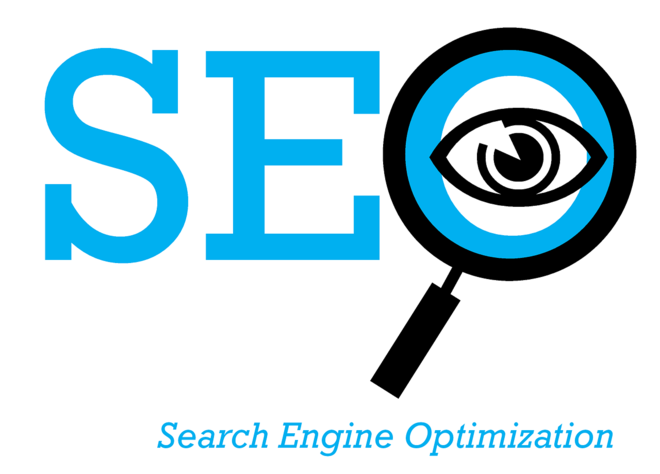 The basic fundamentals of SEO haven't really changed. What has changed is the way SEO was manipulated. There are other factors such as site speed, reliability, location etc, but hopefully, this has put you on the right path.
The basic fundamentals of SEO haven't really changed. What has changed is the way SEO was manipulated. There are other factors such as site speed, reliability, location etc, but hopefully, this has put you on the right path.
As a novice SEO, just follow the rules, be patient and concentrate on creating great compelling content. If you sell a product or service, then look and apply on-page SEO, but also look at your site. SEO may get a visitor to your site, but are they likely to convert when they get there? Who needs a thousand visitors on an e-commerce site if they don't buy anything?
SEO bods will tell you content is king, I disagree, if you are a business, then conversions are king. But test and measure. SEO is just digital marketing, and as a business, you are doing it for commercial gain. So don't waste your money.
If you decide to outsource your SEO, then there are more tips and tricks a good consultant can advise you on. But do your homework, forums, review sites, etc. There are some really good guys out there, but unfortunately, there are a lot more Cowboys and Indians. No pun intended!
Everyone may promise you “top of Page 1 Google”, but not for any worthwhile search term that will generate targeted traffic and potential customers. Be wary of being tied into 12-month contracts. 3 months is more than enough time to start seeing results.
With Google now closely watching the SEO industry, make sure you know exactly what any 3rd party is doing to your business!
Be smart and get streetwise. Just having a high-level understanding could save you a fortune from shady and unreputable SEO "experts" who simply want your cash.
Some Useful Resources
Moz.com - The beginner's guide to SEO - personally I think you will struggle to find a better place to learn. A 5-star superb resource and I haven't even got an affiliate link ![]()
Search Engine Land - another gold mine of information and a good way of keeping up with the latest news.
Local Search Forum - as it says, ideal for small businesses who are concentrating on local search engine visibility. Jam-packed with information and industry experts.
If anyone has any questions, feel free to post a comment below. It's a subject that fascinates me and bores the majority of everyone else.
But if nothing else, I hope it's pointed you in the right direction of your SEO digital marketing journey.

